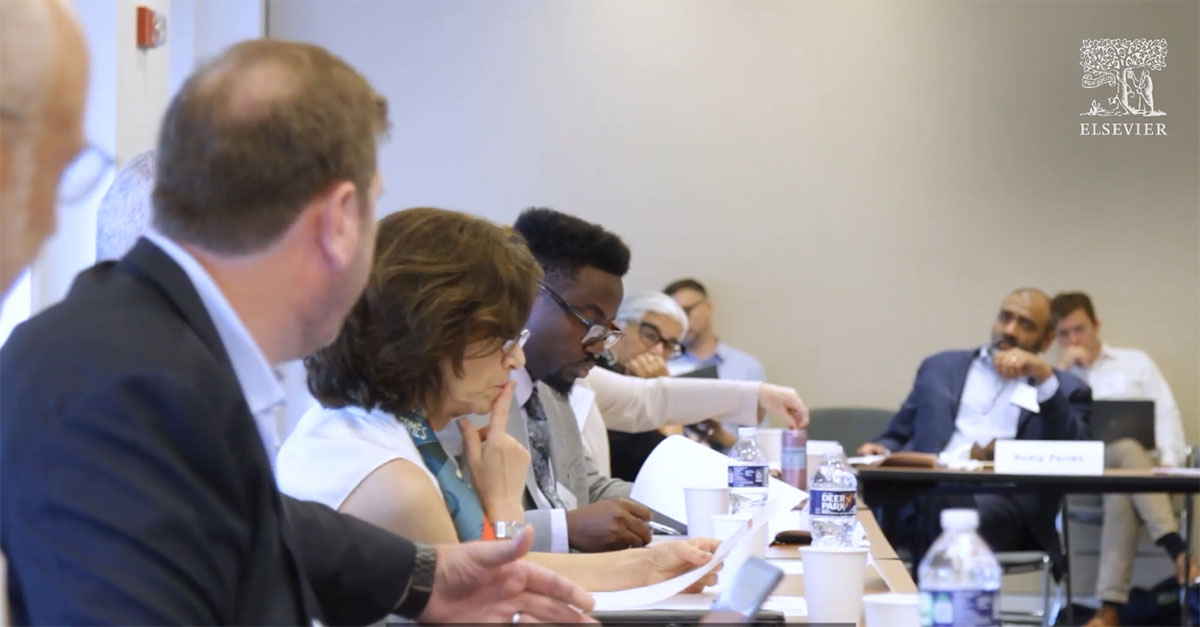Roundtable Focuses on Meeting Emerging Needs of U.S. Researchers

In U.S. Confidence in Research roundtable, research community leaders talk about four interim findings from U.S. researchers independently surveyed by Economist Impact.
Amid the COVID-19 pandemic — and now monkeypox — the public perception of science has swung from positive to negative and everywhere in between. And the swings haven’t been universal: different demographics have adopted divergent perceptions, calling for a variety of responses.
As the leader of Research!America, a U.S. nonprofit organization that advocates for medical and health research, I have been working with the research community for more than 30 years to advance science, discovery, innovation and better health for all.
As we have all seen, the pandemic spotlighted science — a good thing! It’s also raised questions for scientists and researchers about how they conduct and communicate their work. The process of science isn’t new, but it’s more visible to the public, though a great deal of the process remains misunderstood or inaccessible.
Never has there been a more urgent need for the research community to come together so we can apply lessons learned from the past two years and create a new path forward. We have an opportunity and a responsibility to improve the status quo and make changes for the better, to help take advantage of science’s moment in the spotlight.
As part of Elsevier’s global “Confidence in Research” collaboration — an ongoing effort to understand the impact of the pandemic on confidence in scientific research — we brought together a small group of experts from the U.S. research community from universities, science societies, industry and federal research agencies. The group, which spanned disciplines and geographies, discussed recommendations for advancing confidence in research in the United States. They met at the American Association for the Advancement of Science in Washington, DC. Similar roundtables were held in the UK, Netherlands, Germany, Japan and China.
Our conversation centered on interim findings from US researchers independently surveyed by Economist Impact. Economist Impact, part of The Economist Group, brings together evidence-based policy research with media efforts to deliver positive societal change. From those surveyed, interesting themes emerged, providing insights into new skills researchers expressed needing to better meet the demands and expectations of today’s world.
- Researchers need training to better communicate with the public. Researchers often feel at a loss for communicating things like risk and uncertainty but know it is important to inform non-scientists about the scientific process. Those surveyed are calling on institutions to better support and reward the development of these crucial skills. As our group noted, communication skills must go beyond a one-way sharing of information and focus on establishing genuine dialogue with non-scientists.
- Researchers are worried about the politicization of research. Many of the researchers surveyed want to communicate with policymakers to help inform policy but do not want to inadvertently align themselves politically with policymakers. While this is a concern, these relationships are critical for shaping effective policy and fostering trust. With training, researchers can learn how to engage with policymakers in a non-partisan way.
- Researchers have concerns about existing systems of reward and recognition. Historically there has been a focus on individual outputs — the idea that success equates to research being published in prestigious, peer-reviewed journals. Engaging with policymakers, media, public health officials, healthcare providers, and other diverse communities outside of academia is not typically rewarded. To better meet today’s needs, we can and must realign how research careers are built to recognize the many ways researchers add and create value.
- Researchers need greater support in responding to the growing trend of online abuse. Acrimonious interaction around research online, among peers and from the public has been difficult for the research community — especially in the last two years. Yet, just as we can prepare researchers to communicate more effectively, there is an opportunity to better prepare researchers to navigate what has been increased harassment since the onset of the pandemic, and for institutions to better support their researchers in this regard.
I’m optimistic the research community can work together to address these concerns and better support individual researchers to meet today’s challenges. Much of this work falls to the academic institutions that train and employ researchers along with companies and government agencies where researchers are also located.
There is much to gain from building the pathways — the skill-building and experiential opportunities — to facilitate meaningful engagement between researchers and the public. Similarly, there is much to lose if we don’t. The Confidence in Research project provides us with actionable feedback from those “in the trenches.” Let’s put this information to good use.
The full analysis from the Confidence in Research collaboration will be available this fall, but to learn more in the meantime, visit the Confidence in Research hub and watch highlights from the U.S. roundtable.
Note: this blog article is cross-posted on the Elsevier Connect site.




